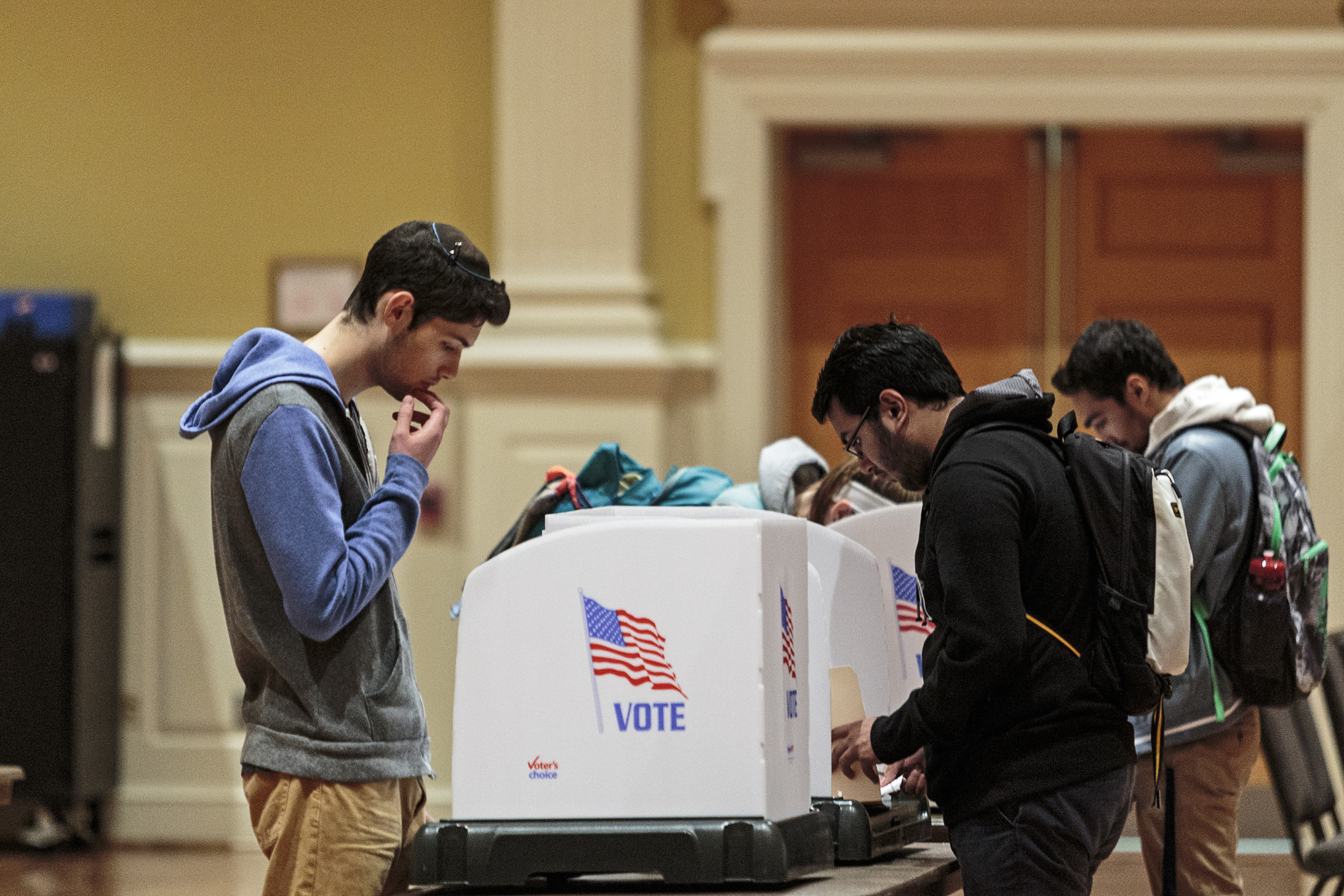Views expressed in opinion columns are the author’s own.
The latest U.S. presidential election result shocked many Americans. But the more concerning matter is how few people cast ballots. The 2016 election saw only a 55.4 percent voter turnout, the lowest in 20 years. Because voting is essential to democracy, we must ensure that this power is properly exercised so our elected officials truly represent us. The best way to accomplish this is to create a compulsory democracy; make voting a civic duty, not a suggestion.
Many Americans don’t vote because they believe their vote does not matter or that only voting for a president is necessary. Both assumptions have some virtue. Forty-eight states employ a winner-take-all system, so that many voters in overwhelmingly Democratic or Republican states understandably feel they have no say at all. To resolve this fault, those states should follow Nebraska and Maine, which allow split electoral college votes, so the voice of the minority can be represented. The incorrect notion that only voting for president is important might stem from how the presidential election attracts substantially more media attention. During the midterm election in 2014, which drew little media attention, only 36.3 percent of citizens voted.
In Politics, Aristotle defined a citizen to be one who either actively creates or enforces legislation. While not all of us are politicians or judges, we all still possess the ability to be true citizens in Aristotle’s view by employing our sacred right to vote. Although our representatives create nearly all our legislation, citizens can also enact laws by voting in referendums for state laws. Such matters could include legality of casinos, marijuana use or less sugar in student meals.
Worldwide, 22 countries require their people to vote. Australia is a good example. They employ minor penalties such as $20 fines for avoiding the voting booth and as a result, in their 2016 federal election, 95 percent of the eligible voters cast their ballots. While their punishments are minor, Australia has developed an active population that makes it to the polls each election.
Encouraging people to vote will also diminish misrepresentation of the populace in our Congress. Because only a little more than half of American citizens vote, our representatives do not ideally reflect the desires and demographics of the country as a whole. The new Congress, sworn in on January 3, 2017, represents the most diverse Congress in United States history. However, there remains a gap in the representation of minorities, who constitute 23 percent of the population but only 19 percent of all members of Congress. These misrepresentations come from discrepancies in voting across races, as Latino and Asian Americans have a 15 percent lower turnout rate than white and black Americans. Furthermore, although 51 percent of Americans are women, women make up only 19 percent of Congress.
To ensure that we are a true democracy, America should take a page out of Australia’s playbook and institute minor fines for not voting. Election Day must be a national holiday that occurs every two years, so that all citizens can have equal opportunity to partake in each election. We need to increase the prevalence of write-in ballots and expand accommodations for those who can’t vote on Election Day. Nationwide, we should also ease voter registration and copy states like Maine and Minnesota, among others, which allow same-day voter registration. By enacting these measures, we will move towards a truer democracy, whose representatives reflect the constituents’ desires
Joseph Kuttler is a freshman English major. He can be reached at joekutt3@gmail.com.



